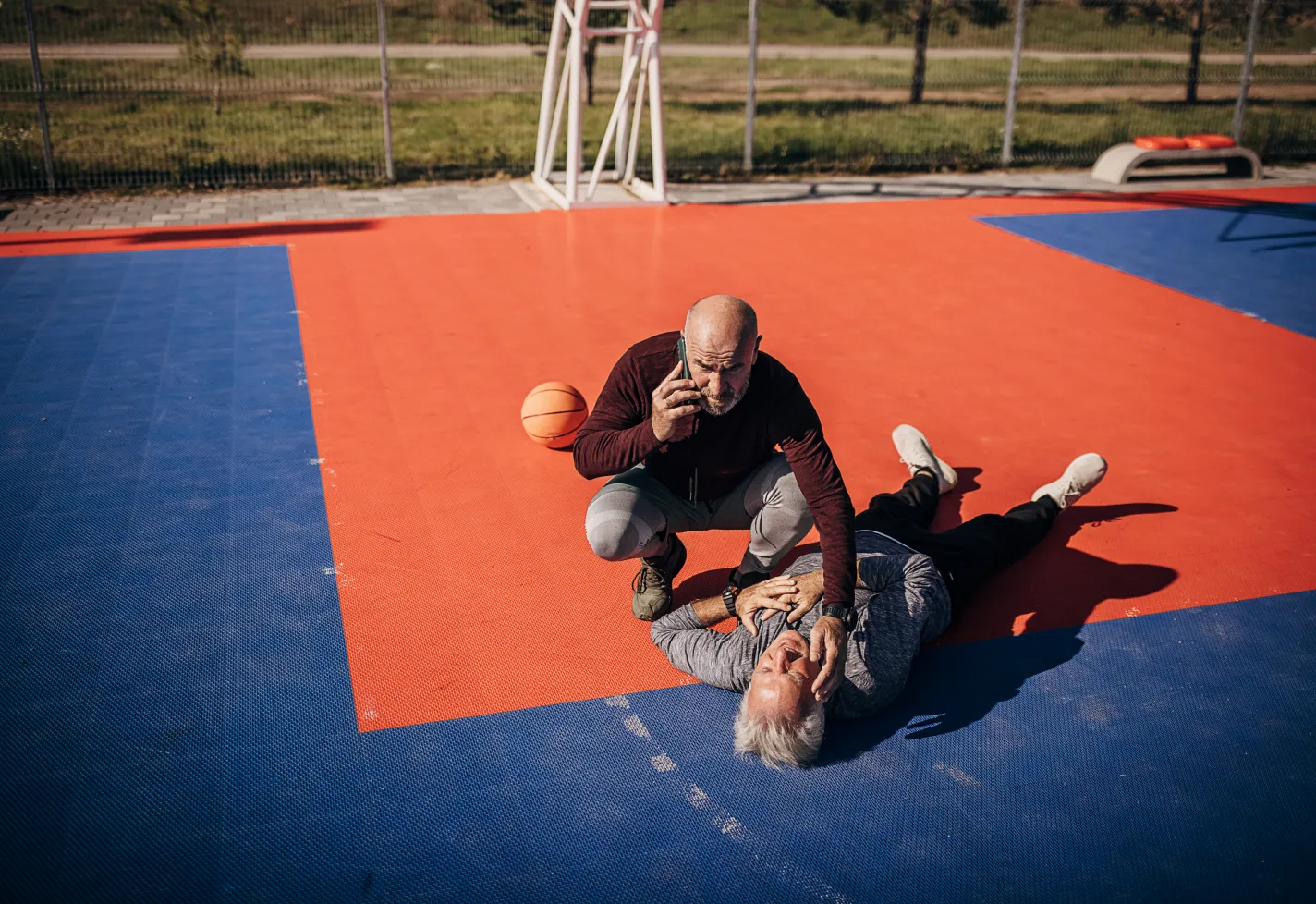
Stroke education can save your life.
While you can’t control all the factors that cause stroke, there are steps you can take to reduce your risk of stroke and limit the damage it causes. Here are five key elements to protecting yourself.
- Know your stroke risk factors
- Ask your primary care provider what you can do to reduce your risk
- Recognize the symptoms of stroke and mini-stroke (transient ischemic attack, or TIA)
- Know what to do if you suspect you are having, or have had, a stroke or mini-stroke
- Seek treatment for a diagnosis immediately
- Never ignore stroke symptoms
Stroke risk factors you can control
According to the American Heart Association/American Stroke Association (AHA/ASA), these five factors account for 82% and 90% of ischemic and hemorrhagic stroke risk:
- High blood pressure
- Poor diet
- Physical inactivity
- Smoking and tobacco use
- Obesity, especially in the abdominal area
These factors can also contribute to your risk of stroke:
- Alcohol use
- Clogged or blocked arteries
- Diabetes
- High cholesterol
- Circulation issues
- Fast or irregular heartbeat
Stroke risk factors you cannot control
Strokes are hereditary in some families, and your age, gender and race can put you at higher risk. Although you can't control these risks, you should be aware and ready to act in an emergency.
These factors can increase your risk for stroke:
- Age (risk is higher if you're 55 or older)
- Family history of stroke
- Gender (males are at higher risk)
- Previous stroke history
- Fibromuscular dysplasia or abnormal cell changes
- Race (Blacks, Hispanics, Asian/Pacific Islanders are at higher risk)
- Patent foramen ovale (a hole in your heart)
Stroke symptoms and signs
When it comes to a stroke, every second without treatment decreases your chance of a full recovery. Knowing how to identify the signs that you or a loved one is having a stroke, or has had a mini-stroke, can make a huge difference in not only limiting damage, but saving life.
Common symptoms of a stroke include:
- Vision changes, such as blurred or lost sight in one or both eyes
- Numbness or weakness in your face, arm or leg, typically on one side of your body
- Dizziness or loss of balance
- Speech or cognitive difficulties
- Issues with coordination, walking or mobility
Sudden nausea, vomiting, seizures, fainting or confusion occur less frequently but are symptoms you shouldn't ignore.
Get treatment immediately.
The moment you think you or a loved one is having a stroke, call 911 immediately. This is the best way to ensure the patient receives proper medical care as fast as possible. The emergency medical service (EMS) will provide on-site medical care and alert the hospital of the incoming patient so that they are prepared when the patient arrives.
EMS routes patients to the nearest hospital, but you can request they take the patient to a hospital of your choosing. EMS may oblige if the distance isn't too great.
Never ignore stroke symptoms.
If you experience stroke symptoms that decrease or go away, don't ignore them. That could indicate a transient ischemic attack (TIA), which is also known as a “warning stroke” or “mini-stroke.” Schedule an appointment with your healthcare provider as soon as possible.
"BEFAST" to recognize signs of a stroke
One way to keep the risk factors for stroke top of mind is to remember the acronym "BEFAST." Take immediate action if you detect these warning signs:
- B: Balance — Do you have a sudden loss of coordination or balance?
- E: Eyesight — Has your vision changed or become impaired?
- F: Face — Does one side of your face droop when you smile?
- A: Arms — When you raise both arms, does one arm drift downward?
- S: Speech — Is your speech slurred when repeating a simple phrase?
- T: Time — Call 911 immediately if you or a loved one has one or more of these symptoms.
If you or a loved one is having a stroke, call 911 immediately.

